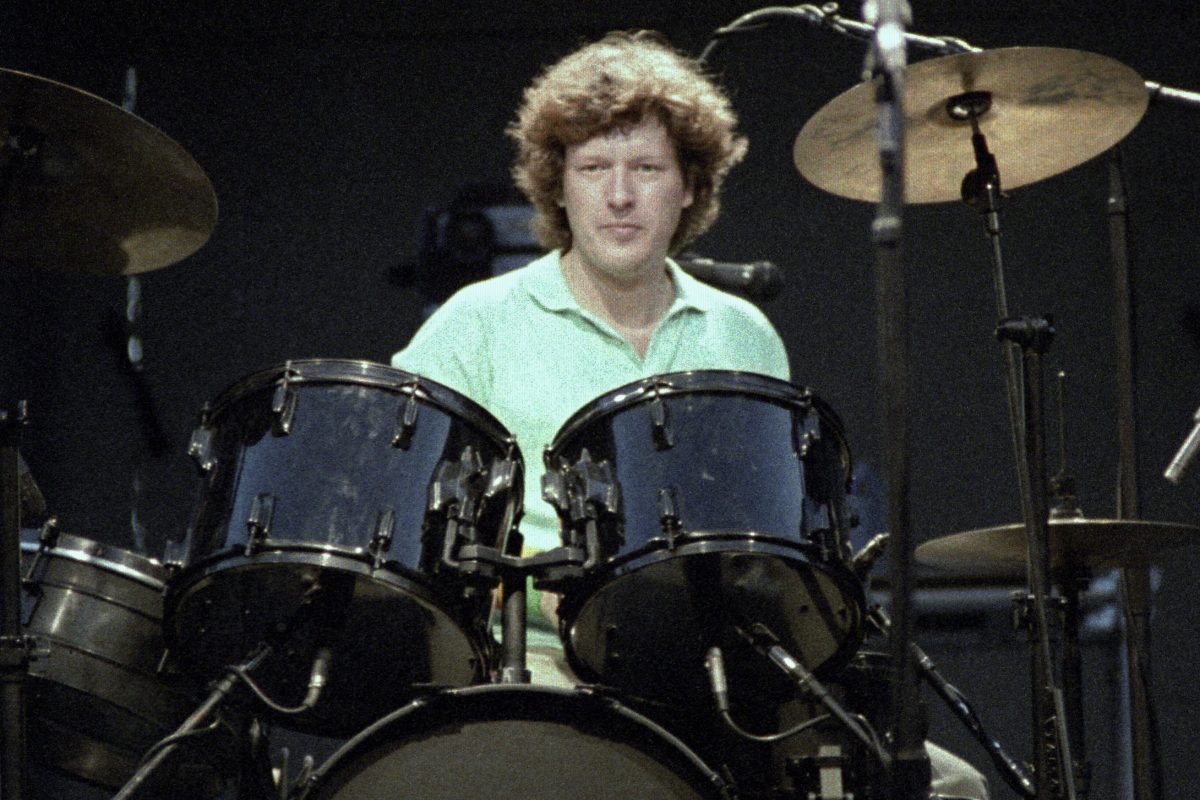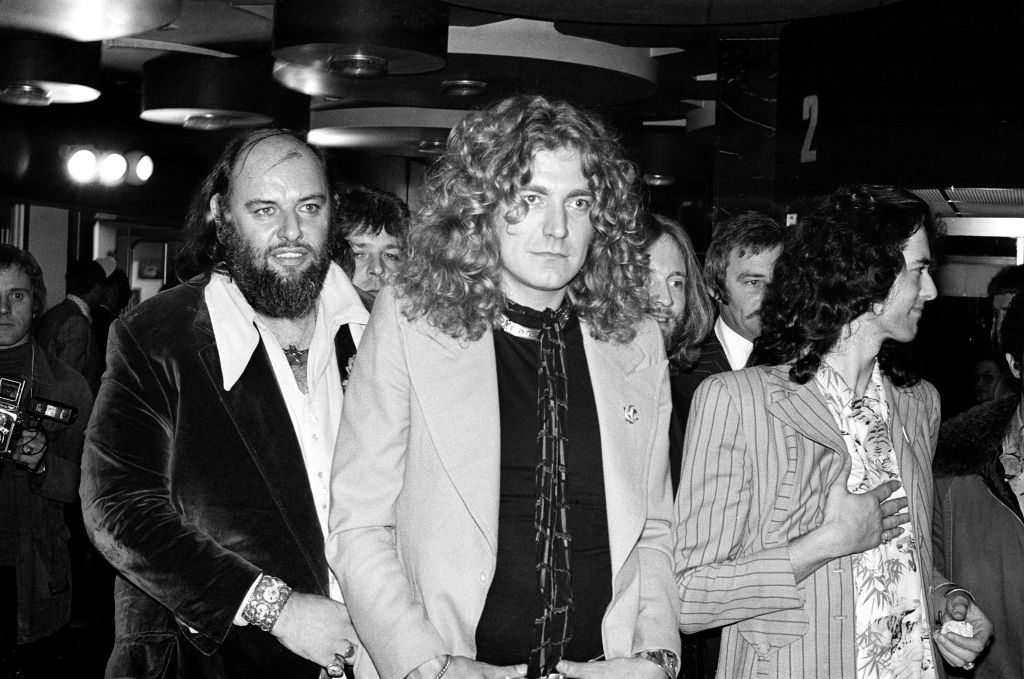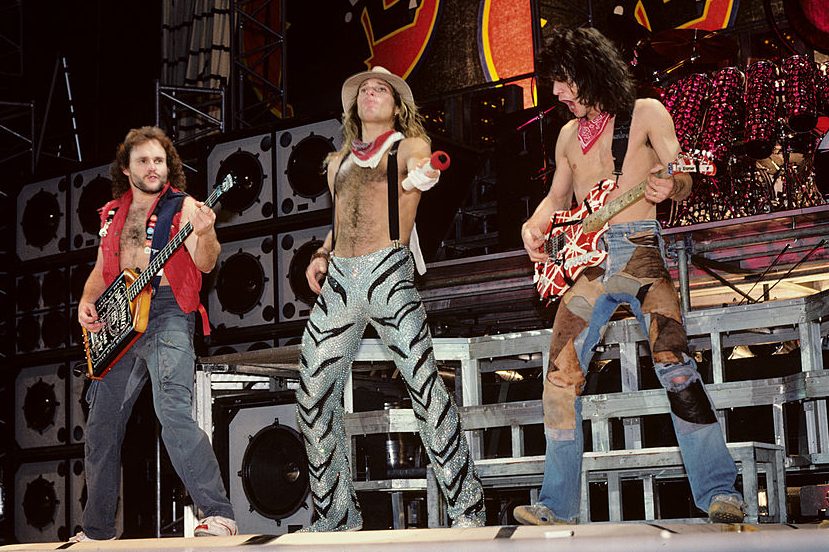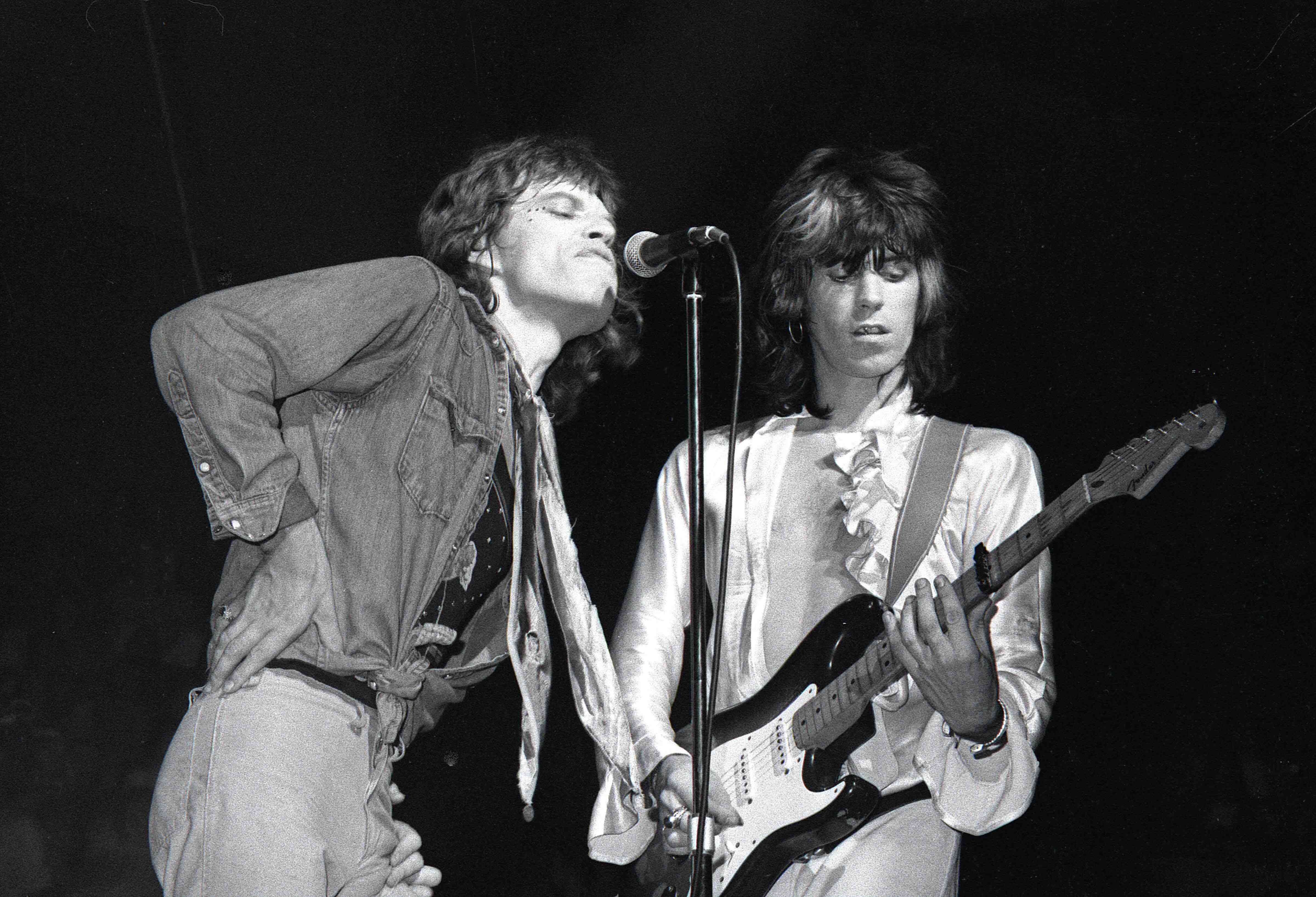Two things in life Chris Frantz knows to be true: behind every great man is a great woman, and behind every great band is a great rhythm section. Or at least those are two of the big takeaways from Remain in Love: Talking Heads, Tom Tom Club, Tina, a new memoir from the Talking Heads and Tom Tom Club drummer, out today.
Now 69, Frantz met his future wife and bandmate Tina Weymouth when they were both art students at the Rhode Island School of Design in the early ’70s. During their time at the school, Frantz and Weymouth also met another former RISD student who cut his own hair, wore secondhand clothes and sported a Rasputin-esque beard: David Byrne. The trio eventually moved to New York City and began playing music together with Frantz on drums, Weymouth on bass and Byrne on guitar and vocals. They also shared a 2,700-square-foot loft on Chrystie Street in the Lower East Side that cost $289 per month.
“We would go to our day jobs in the morning and come home and make a little bit of dinner and sit down and rehearse for hours,” Frantz tells InsideHook. “We worked really hard not just to write the songs, but to get them really tight and snappy sounding in our performances. Before the band even had a name, I felt very strongly that this was a dream come true to me and it was really going to work. I wanted to do everything I could to keep it happening, keep it together.”
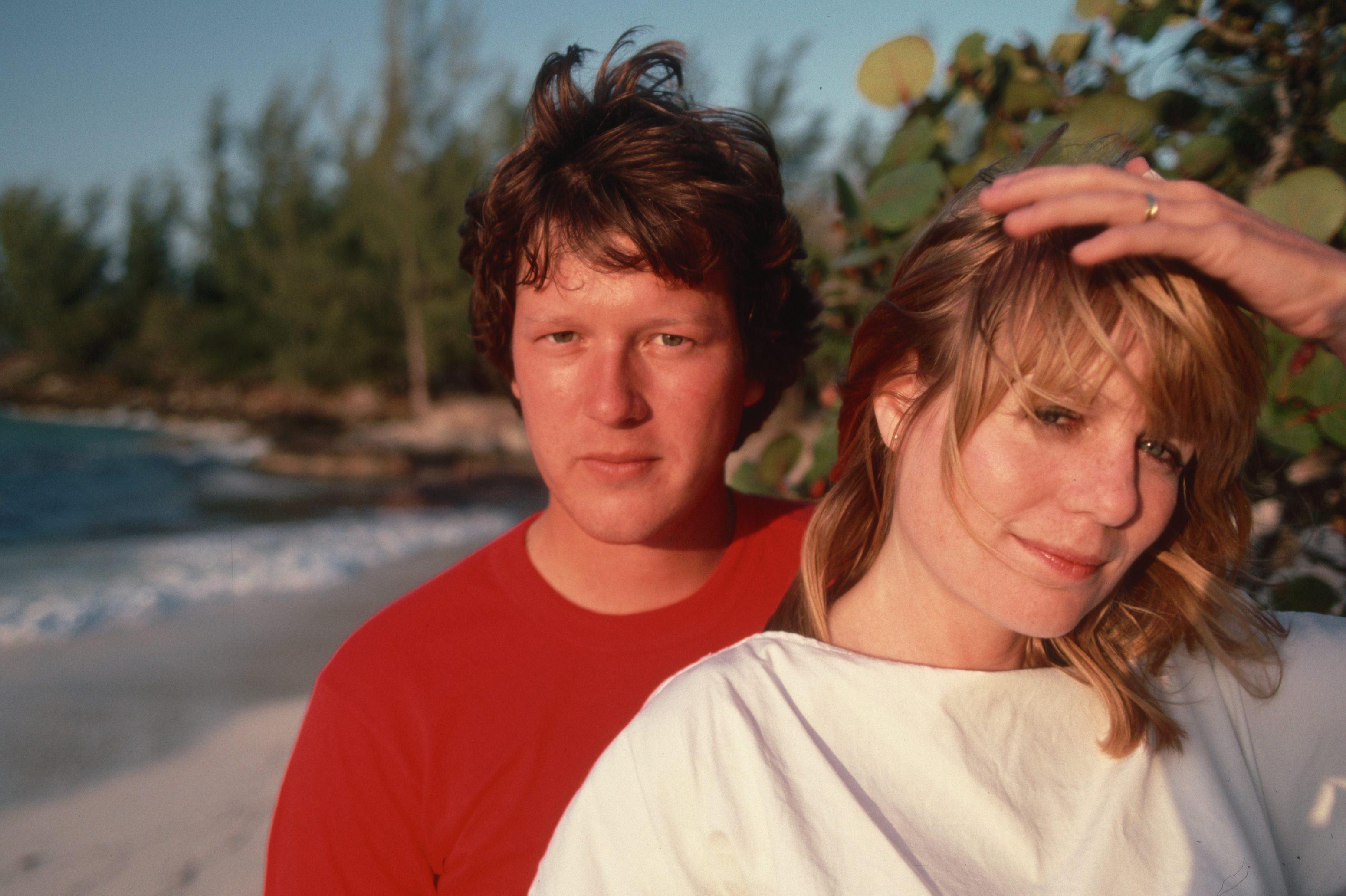
Despite living and playing together, there weren’t any major issues between the young couple and Byrne back in their founding days.
“David was a great roommate and an amazing band member,” Frantz says. “David is an unusual person and I think he would be the first to admit he has a few things that are different from other people, but we never had any trouble living together. Sometimes he made dinner and I can tell you, David Byrne would eat anything. I think he still will. He has very adventurous tastes in cuisine.”
Incidentally, the loft was three blocks away from CBGB, where Talking Heads played their first gig as a trio in June of 1975. They opened for the Ramones.
“We only had maybe 15 people in the audience and half of them were there to see the Ramones,” Frantz says. “I was a nervous wreck, but CBGB was like an incubator for us. We were able to learn our stagecraft, perform original material and make mistakes without having a whole lot of people see them. When the band started to get better, the audiences got bigger. The audiences at CBGB grew with the bands. It was a very symbiotic relationship between the audience and the bands there. One really smart thing [owner] Hilly [Kristal] did was if you were in a band that had ever played at CBGB, you didn’t have to pay admission to come in. You could come in at any time for free. It became a real hangout, like a clubhouse, for all the downtown musicians.”
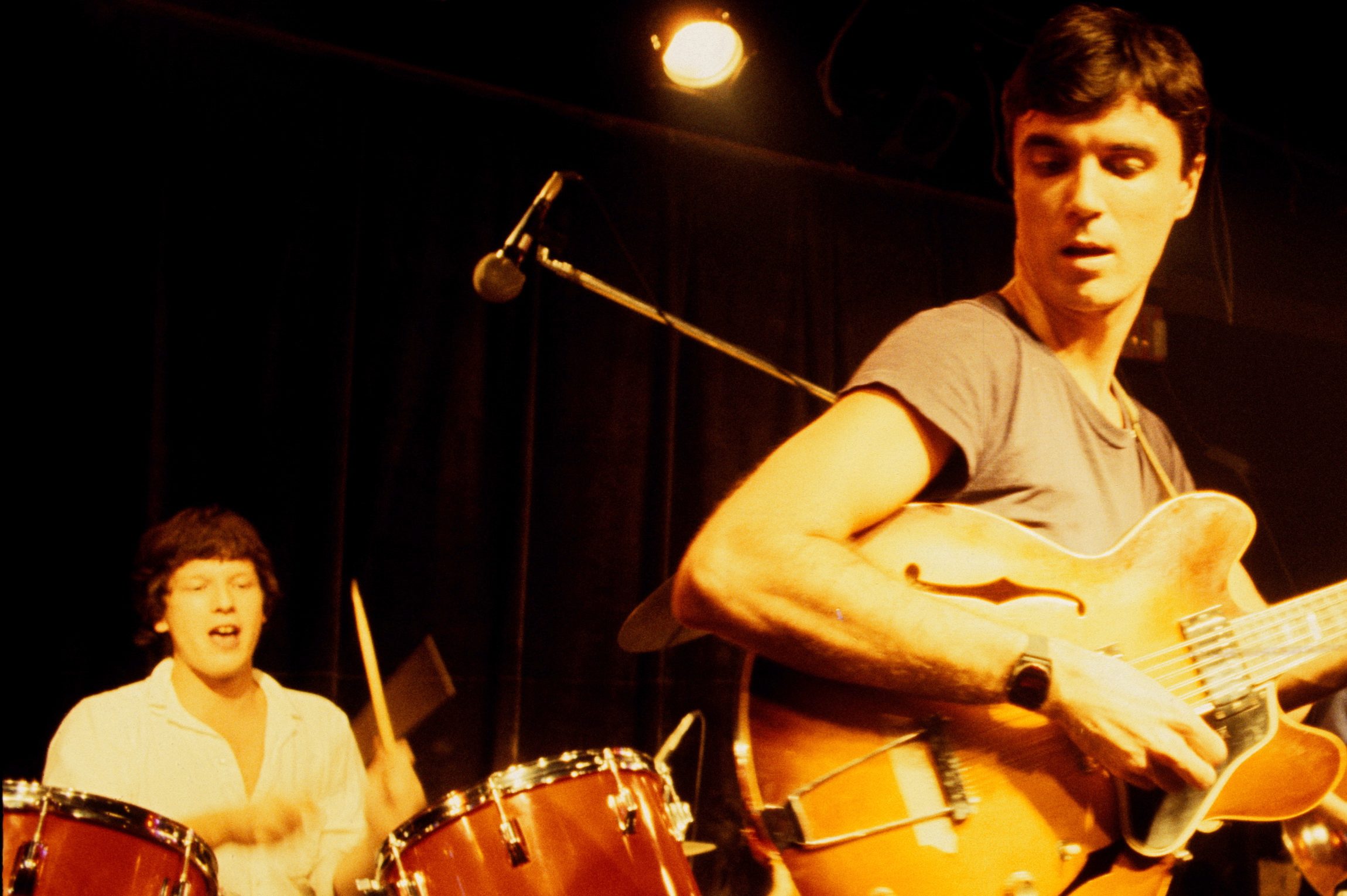
Those musicians included people like Patti Smith, Lou Reed and Debbie Harry, as well as avant-garde artist Andy Warhol.
“I wish Andy Warhol and Lou Reed were still with us. I was in awe of both of those people and I never felt in any way like their equal,” Franz says. “When we met Andy Warhol for the first time, we’d only been out of art school for a year. He always treated us like we were more important than he was, which is really quite something, you know? And Lou Reed … he was just such a character. He could be alternately very sweet or very acerbic and even nasty. Fortunately, to us, he was mostly sweet.”
A person who was sometimes not so sweet, as Frantz points out while describing tensions over the songwriting credits for 1980’s Remain in Light, Talking Heads’ fourth studio album, was Byrne. Though it was eventually corrected, originally only Byrne and collaborator Brian Eno were given credits for the music on the album, much to the dismay of the other three Talking Heads (guitarist and keyboard player Jerry Harrison having joined the band in 1977).
“It was completely unfair and unethical, but a lot of things in the music business are unfair and unethical. If you want to continue, you just have to bite the bullet,” Frantz says. “Now, we did speak to David and we did get a few things corrected, but we found out that is just the way he is. It’s almost as if he can’t help himself. I think he does know the difference between right and wrong, but there’s something in his brain that says, ‘I don’t give a shit.’ That’s something we had to deal with pretty much from the very beginning. As we had more and more success, it became more and more pronounced as a problem. It was just something we learned to live with. It wasn’t easy, but we knew that bands like this didn’t come along every day. So, I made every effort possible to be diplomatic, to pull my share of the weight and to try to be understanding of David’s many idiosyncrasies.”
Revealing the inside story of some of the things that went on behind the scenes with the band is one of the reasons Frantz wanted to write his memoir.
“Having been in the band since its inception, I’m aware of a lot of things that maybe were not ever divulged, and I think fans are interested in little details,” he says. “I think a lot of the stories about Talking Heads that have become accepted as fact are, in fact, not. I want people to understand that Talking Heads was always very much a shared experience to each person’s story. It was more than one person. I consulted with Tina a lot during the writing of the book. She was totally in favor of it. In fact, she liked it very much.”
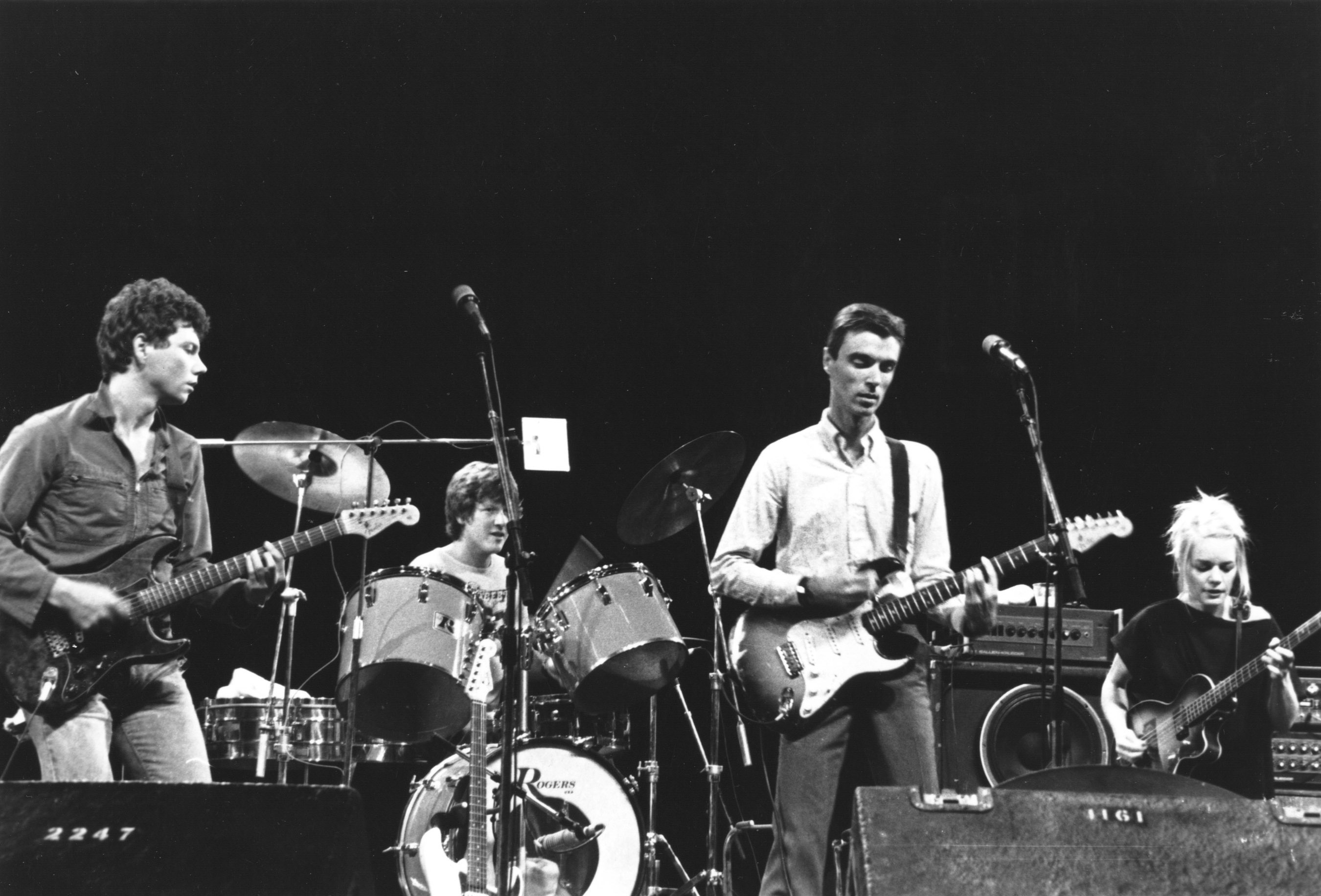
A year after Remain in Light was released, Frantz and Weymouth ventured out into Byrne-less musical waters with Tom Tom Club and scored a No. 1 song on the Billboard Disco Top 80 chart with the hit single “Genius of Love” off their self-titled 1981 debut album.
“Genius of Love” would go on to be sampled and repurposed for dozens of remixes and bootleg versions after it was released, including by GrandMaster Flash & The Furious Five in 1982’s “It’s Nasty/Genius of Love.” It wasn’t intentional, but Tom Tom Club got in on the ground floor of early hip-hop.
“We didn’t even know it was called hip-hop. At the time, it was just called rap,” Frantz says. “In one of the most wonderful moments of my life, I was walking west on Houston Street where it hits 6th Avenue. There were like eight or 10 basketball courts on that corner. It was about 11:00 on a summer morning and people were playing basketball and they all had their boomboxes set to WBLS. On came a mega-mix, an extended mix of “Genius of Love.” There were like 50 guys playing basketball and they all stopped their games and started dancing. I thought, ‘I’ve made it. I’ve finally arrived. This is it. We have liftoff.’”

Though, as Frantz puts it, “nobody is breaking down the door” for a new Tom Tom Club album, that liftoff would prove to be an influence on many bands that followed.
“I noticed that Tom Tom Club had an enormous effect on R&B music,” he says. “A number of bands started sounding like Tom Tom Club. Not that they were direct copies or anything, but you could hear the influence loud and clear. With Talking Heads, it’s even more obvious. I notice we’ve been a source of inspiration to many young bands.”
That source of inspiration abruptly broke up in 1991, seven years after Byrne pulled the group off the road. Though Byrne did consent to share the stage with his Talking Heads bandmates for a three-song set at their Rock and Roll Hall of Fame induction in 2002, the calls for a real reunion continue to go unanswered.
“It’s always been a possibility from our point of view. The only person that’s not interested is David,” Frantz says. “Who knows? Maybe one day, David will become interested. I mean, he’s certainly doing well playing Talking Heads songs on Broadway. The last time I broached the subject was in 2003. We had some amazing offers from various promoters around the world and when I say amazing, I mean truly amazing. David refused and he asked me to never mention it again. I know he gets asked the same way I get asked, and I think it must be highly annoying to him, because he wants people to think about his solo career. But Talking Heads was a band that was a once-in-a-lifetime experience. You can’t recreate it with other people or anything like that.”
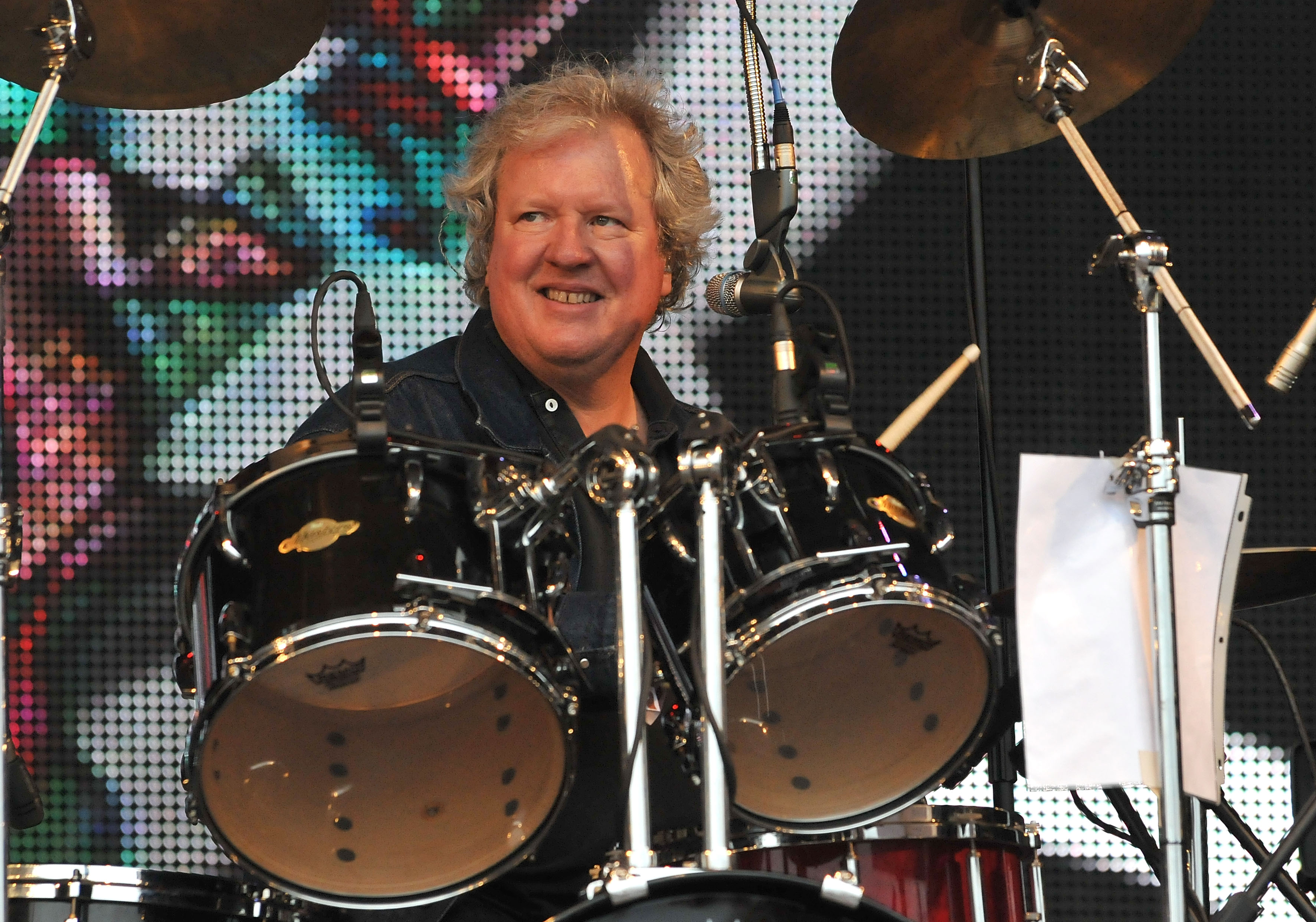
If Frantz ever does play Talking Heads songs again, one thing is for sure: it will be with Byrne.
“Oh yeah,” he says. “Oh yeah.”
Weymouth, who Frantz makes abundantly clear is the love of his life in Remain in Love, would have to be there as well, holding down the groove.
“Despite all the ups and downs and everything we’ve been through over the years, my love for Tina remains very strong and we still get along great,” Frantz says. “We don’t necessarily agree on every single thing, but we understand each other very well and we just celebrated our 43rd anniversary.”
This article appeared in an InsideHook newsletter. Sign up for free to get more on travel, wellness, style, drinking, and culture.
